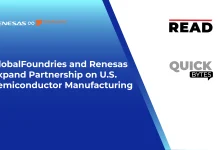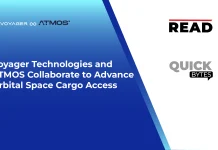In a move that signals the next era of supply-chain operations, Infios and Amazon Web Services, Inc. (AWS) announced a strategic collaboration to embed generative-AI agents into Infios’s Order Management solution (Infios OM), setting a new standard for how supply chains execute and adapt in real time.
What the collaboration entails
Infios-positioned as a global leader in intelligent supply-chain execution-will leverage AWS’s generative-AI infrastructure, including Amazon Bedrock and Strands Agents, to enhance its core order-management system. Key highlights of the initiative include:
-
Embed AI agents to find fulfilment problems early. They can rebalance orders across networks and predict delivery-time issues before they happen.
-
Simplifying onboarding and configuration of supply-chain workflows, generating visual representations for expert review and refining processes through AI-augmented orchestration.
-
The initial rollout is scheduled for early 2026, with Infios and AWS aiming to connect order, warehouse and transportation systems into a unified intelligent execution layer.
Eugene Amigud, Chief Innovation Officer at Infios, said “We’re building intelligent agents that now proactively detect and resolve anomalies during fulfilment, rebalance orders across networks and predict delivery times before issues arise” And AWS’s Taimur Rashid added. “Together, we’re laying the groundwork for workflows that learn, adapt and execute with the speed and intelligence modern supply chains demand.”
Why this matters for the Supply Chain industry
This announcement impacts how supply chains work, especially in the overall tech landscape.
From automation to intelligence
Historically, supply-chain systems have focused on automation-executing tasks faster, reducing manual effort. What this collaboration signals is a shift toward agentic AI-systems that not only automate but also decide and adapt. As Infios puts it, execution becomes “intelligent, connected, adaptive”.
Real-time orchestration at scale
In industries where speed and variability matter, being reactive is no longer enough. The partnership helps build systems that anticipate disruptions-from inventory shifts to logistics delays-and adjust execution flows accordingly. According to AWS’s blog, agentic AI can reduce logistics costs by 3-4% of functional spend-$290-550 billion across industries.
Also Read: IBM Impact Accelerator Powers AI in Supply Chains
Unifying execution domains
Order management, warehouse operations, transportation-often these are separate silos. Infios and AWS want to create a smooth, smart flow. This helps businesses manage everything from start to finish, not in separate parts. This aligns with the emerging concept of Intelligent Supply Chain Execution.
Resilience & adaptability become strategic advantages
With rising supply-chain complexity-omnichannel, globalisation, uncertain demand-resilience is key. Agentic AI offers the ability to detect anomalies, reroute flows and dynamically adjust. For firms operating in volatile environments, that capability becomes a differentiator.
Effects on businesses operating in the supply-chain space
For manufacturers, logistics service providers, retailers and supply-chain IT vendors, this announcement offers both opportunity and challenge.
Operational benefits:
-
Faster onboarding of new partners or 3PLs, thanks to simplified AI-driven workflows.
-
Better delivery predictions and order commitments reduce expedited freight costs. This also makes customers happier.
-
Enhanced visibility across network execution-shippers and carriers can gain insights earlier and act faster.
Strategic advantages:
-
Companies that embrace these capabilities early might leave competitors behind. They can turn supply-chain execution into a competitive advantage, not just a cost.
-
Technology providers offering agentic-AI will see fresh opportunities. As companies transition from classical automation, they embrace adaptive execution systems.
-
Consulting firms and systems integrators might notice more demand for AI in supply chain design.
Considerations & challenges:
-
Data foundation: To enable agentic AI, companies must have clean, integrated data across order, warehouse and logistics systems.
-
Change management: Operating with AI-agents that act or recommend actions requires trust, governance and new workflows.
-
Integration complexity: Connecting agentic workflows across multiple systems means architecture, security and workflow redesign efforts.
-
ROI timing: While the potential for value is large (e.g., cost reduction, improved speed), realising it will require pilots and scaling over time.
Looking ahead: what firms should consider
-
Assess maturity of your current execution systems: How well do you integrate orders, warehouse, transport? What visibility do you have?
-
Start piloting “intelligence” not just automation: Identify high-value use cases for agentic AI-e.g., anomaly detection in fulfilment, dynamic order rebalancing.
-
Make sure your tech stack is cloud-ready. The Infios–AWS partnership depends on AWS’s generative AI services. So, cloud infrastructure, data ingestion, and real-time computing are important.
-
Build governance and human-in-the-loop systems. As AI agents act, set escalation points, define decision rights, and ensure auditability.
-
Measure outcomes across speed, cost, resilience and customer experience-not just cost-savings. The promise is wider than just automation.
Conclusion
The partnership between Infios and AWS marks a significant turning point for the supply-chain industry. By embedding agentic AI into order management and execution workflows, the collaboration moves supply chains from automated processes to intelligent, adaptive systems. For businesses operating in this sector, the message is clear: supply-chain execution can no longer be just reliable-it needs to be responsive, predictive and connected. Firms that embrace these capabilities early will not only manage disruption-they’ll turn it into competitive advantage.




